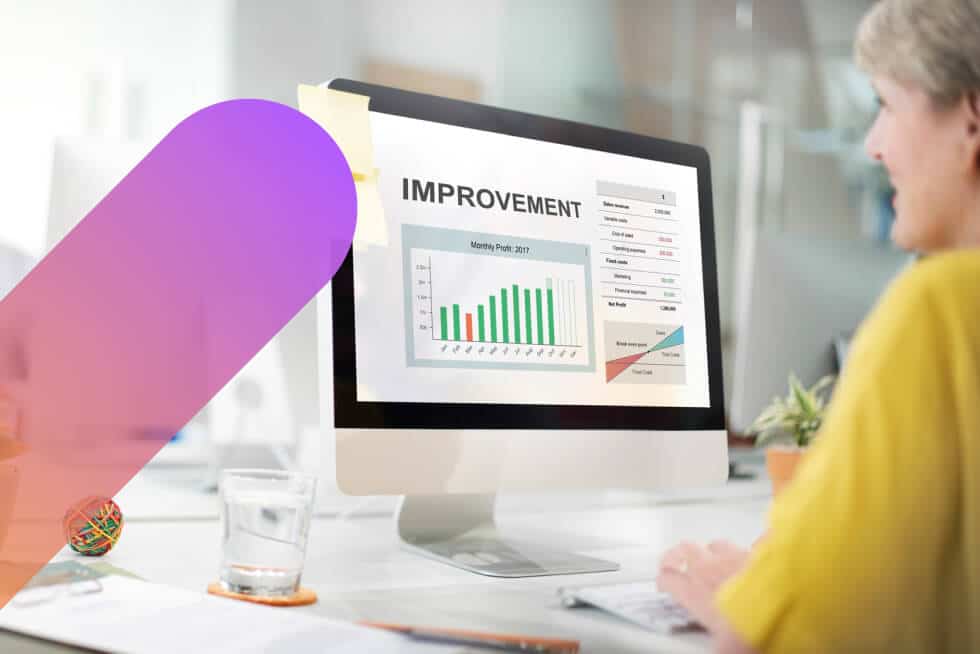Is your business in good financial health? In general, this is of course very important, but especially when applying for business financing, this question plays an important role. Because as an entrepreneur, when you apply for such business financing, the company’s financial status will really be looked at first. One way to assess the financial health is to calculate solvency. What is solvency, what is its importance, and how do you calculate it, really? We cover it in this blog!
What is solvency?
Simply put, solvency is the ratio of a company’s equity to its borrowed capital. But what exactly do we mean by debt capital and equity? Equity is calculated by subtracting debts (liabilities) from your assets (assets). Loan capital is the money you have borrowed from an external party, such as a bank or financier.
Why is solvency important?
Being aware of your company’s solvency is important for several reasons. First, it shows how financially sound your business is. A higher solvency means your business is in good financial shape. This is not only good to know for yourself, but also for others. With a healthy solvency, you offer business partners more certainty that they can work with your company in a healthy and stable way. And do you want to apply for financing at the bank? Even then a healthy solvency comes in handy. The higher your company’s solvency, the less risk for the financier.
How do you calculate solvency?
We now know what solvency is and why it is important, so now it is time for the next step: calculating it. As mentioned, solvency is the ratio of a company’s equity to its borrowed capital. Therefore, the formula for calculating solvency is as follows:
Solvency = equity/total assets x 100%
For example, is your equity EUR 50,000 and the company’s total assets EUR 150,000? Then this means your company’s solvency is 33%.
How do you improve solvency?
Could your company’s solvency be improved? Fortunately, you can do so in a number of ways. Given that solvency is calculated on the basis of debt and equity, you can either reduce debt or increase equity. Practically speaking, you can take the following steps to increase solvency:
1. Increase your profits
Increasing your profits increases equity. Increasing profits may sound easier said than done, yet there are some things you can do to increase your profits in the short term. For instance, take a critical look at costs, subscriptions, fixed charges and other expenses. Is there room to cut these? Then you will automatically keep more profit.
2. Reduce your working capital
Working capital is the money you need to pay the daily financial obligations. This capital is tied up in the company, including stocks, materials, but also outstanding invoices. Working capital is very important for a business. Without sufficient working capital, you can run into problems paying daily expenses. However, too much working capital is also not desirable, as it is fixed in the company and you as an entrepreneur can do nothing with this excess. Is there room in the working capital to reduce it? Then this has a positive effect on solvency.
3. Optimise stock
The third tip is an extension of improving working capital. As mentioned, your company stock is part of the working capital. Therefore, make sure your stock is always in balance. Are you often stuck with large quantities? Then it might be smart to start working with a smaller stock. Here, not only your company’s solvency, but also your working capital will improve.
4. Accounts receivable management
When improving your solvency, it is also a good idea to take a good look at your debtor management. Having your debtor management in good order will help you get invoices paid on time. This also plays an important role when you want to improve your company’s solvency, because as soon as invoices are paid faster, debt will decrease sooner and faster. However, improving receivables management does help when you have a lot of outstanding invoices, but does not guarantee that invoices will actually be paid sooner. Fortunately, Factris has another solution for this: factoring.
Improve solvency with factoring
Despite improved credit management, do you still suffer from the fact that payments of outstanding invoices take a long time? Then Factris offers the solution you are looking for with factoring. Factoring is all about selling invoices.
In exchange for this sale, Factris advances you the full value of the invoice in question within 24 hours. As a result, you no longer have to wait for the money from your outstanding invoices and you will have the money you are entitled to in no time. Factris not only takes over the invoice, but also the debtor management. Factris takes care of the further financial settlement with the customer, so you no longer have to worry about collecting the invoice.
Do you want to know more about the possibilities of factoring? Feel free to contact us, we will gladly help you.

